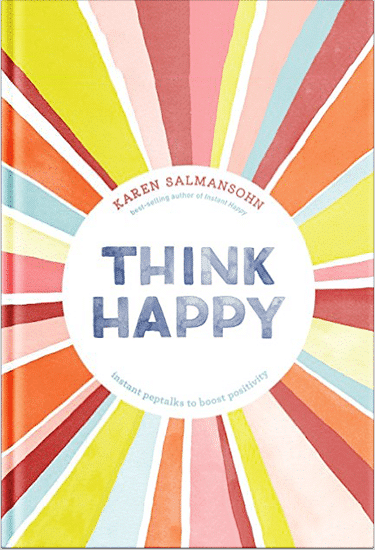 If you’ve been wondering why is it so hard to tell the truth sometimes…then read on for 7 reasons why! Speaking the truth to someone can feel scary. But it’s important if we want to enjoy happy relationships – and want to maintain good core values.
If you’ve been wondering why is it so hard to tell the truth sometimes…then read on for 7 reasons why! Speaking the truth to someone can feel scary. But it’s important if we want to enjoy happy relationships – and want to maintain good core values.
You know what’s funny? People can easily see all the stupid things other people do—but you have trouble seeing your own stupid errors.
Despite the fact that your error is right smack in front of your nose.
Or even smack on your cheek.
For example:
If you have a smear of ink on your cheek, you won’t be able to see it yourself.
You will know only when an honest friend tells you.
The same thing goes if you have a problem with being too cheeky.
Personally, I want to be alerted if I’m walking around too inky or cheeky.
If honesty really is the best policy for a happy, intimacy-filled life, then why do people sometimes find themselves avoiding telling the truth to someone?
By not sharing what’s going on deep down, you build surface-level relationships that can be lonely and unsatisfying.
Whenever someone chooses not to speak the truth, it’s because there’s some hidden perks to remaining mum.
6 Reasons Why It’s So Hard to Tell The Truth Sometimes
1. You feel keeping quiet is the best path to be liked
 Yep, you foolishly feel that by keeping a big, high wall between the other person and the truth, you will then stay closer to him or her.
Yep, you foolishly feel that by keeping a big, high wall between the other person and the truth, you will then stay closer to him or her.
The irony is obvious:
Without honesty and its incumbent vulnerability, you will never create true closeness and warmth.
You might tell yourself you’re being “more loving” by not talking openly. But in truth, your blocking love from flowing between you and the other person.
Remember: There are a range of loving ways to speak your truth without hurting the other person deeply and/or creating massive conflict. I write about this here.
2. You feel superior by keeping people in the dark
On some level you know that by not giving the other person the opportunity to know and correct his or her misbehavior, you get to maintain your lesser view of that person.
And you’d rather be right than make the relationship be right.
And/or you’d rather keep that person in the dark, so you can shine brighter.
3. You don’t like change
You recognize that by not sharing, you don’t have to change – and the situation doesn’t have to change. Woo hoo! You prefer to cling to the status quo and your learned comfort zone.
4. You dislike vulnerability
 Being vulnerable or seeing someone else be vulnerable isn’t easy for you.
Being vulnerable or seeing someone else be vulnerable isn’t easy for you.
Meaning?
You derive some emotional safety benefits from remaining separate and lonely.
I explain this more in this article about communication styles!
5. You have low self-esteem
Basically, you worry people will look down on what you have to say, so you don’t speak up.
6. You learned to avoid conflict from a family who avoided conflict
Did you grow up in a family where people avoided conflict – and/or kept secrets, “stonewalled,” and basically did not speak openly?
Well… if so, then there’s a good change you not only inherited your mom’s nose and your daddy’s hair – you also inherited their “limited communication skills.”
Don’t worry. You have the power to disinherit this quality. Read these courageous conversation tools.
7. You get to keep on beating yourself up
You get to keep on secretly beating yourself up about how bad a person you are for having this misbehavior. Some part of you likes to self-sabotage your happiness. I write about this more in an article here.
In Summary
With all the above in mind, I want to encourage you to start regularly sharing more gut-honest conversations with people—and thereby increase your daily intimacy and happiness.
Think happier. Think calmer.
Think about subscribing for free weekly tools here.
No SPAM, ever! Read the Privacy Policy for more information.
One last step!
Please go to your inbox and click the confirmation link we just emailed you so you can start to get your free weekly NotSalmon Happiness Tools! Plus, you’ll immediately receive a chunklette of Karen’s bestselling Bounce Back Book!



 If you’ve been wondering why is it so hard to tell the truth sometimes…then read on for 7 reasons why! Speaking the truth to someone can feel scary. But it’s important if we want to enjoy happy relationships – and want to maintain good core values.
If you’ve been wondering why is it so hard to tell the truth sometimes…then read on for 7 reasons why! Speaking the truth to someone can feel scary. But it’s important if we want to enjoy happy relationships – and want to maintain good core values. 
 Yep, you foolishly feel that by keeping a big, high wall between the other person and the truth, you will then stay closer to him or her.
Yep, you foolishly feel that by keeping a big, high wall between the other person and the truth, you will then stay closer to him or her. Being vulnerable or seeing someone else be vulnerable isn’t easy for you.
Being vulnerable or seeing someone else be vulnerable isn’t easy for you.